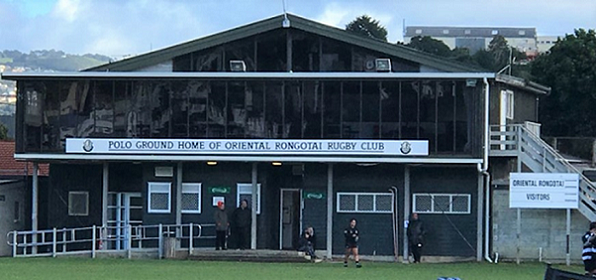Issue 86 : 25 July 2021
Talofa Lava, Kia Orana, Malo E Leilei, Tena Koutou, Hello ...
... and welcome to the latest issue of “For The Love Of The Game”, the official e-zine of the New Zealand Amateur Sport Association Inc.
If you have any feedback on this issue, ideas for future articles, or would like to contact the Editor, please click here. And, you are invited to forward the e-zine to others you know, who may be interested in reading it. An archive of earlier editions of the e-zine can be found here. For those who follow Twitter, you can also follow the Association, @AmateurSportNZ.
If you are interested in applying for membership of the Association, please click here.
Oral Submission Re-Scheduled ...
The Association’s oral submission to the Economic Development, Science and Innovation Select Committee has been re-scheduled for 12.20pm on Thursday, 5 August.
A total of 113 written submissions have been made on the Bill. From the sport sector, in addition to the Association, only the following sport organisations have provided a submission: the Titahi Bay Yacht Club; the Queenstown Tennis Club; Surf Life-Saving New Zealand, (an Association member); and the Rimutaka In-Line Skating Club, (an Association member). Notably, there is no submission from Sport New Zealand or any Regional Sport Trust. Nor is there any submission from any national sport body other than Surf Life-Saving New Zealand.

(Volunteering NZ says the Bill goes too far in imposing obligations on incorporated entities)
However, in recognising that most sport clubs rely on volunteers to operate, the Association notes that “Volunteering New Zealand” has made a submission (which aligns with the Association’s), noting that: the legislation should not add governance standards to existing frameworks; and the Bill in its current form goes too far in imposing obligations on incorporated societies. As you will read further below, the current Bill fails these principles, on both counts.
Small Sport Clubs Need Relief From Onerous Financial Obligations ...
A flaw in the drafting of the Incorporated Societies Bill will potentially cause incorporated sport clubs with fixed assets to become subject to more onerous financial reporting requirements, regardless of the size of their annual cash-flows.

(Regulation is a blunt tool, which will impact “small” societies unfairly)
The Association is concerned that the definition of “small society” in the Bill is too restrictive, with the effect that more comprehensive/complex set of financial reporting measures will apply. This will further inhibit, rather than enable, smaller incorporated sport entities to achieve compliance with their financial reporting obligations under law.
Under the new Bill, a society is defined as a “small society” only if: (i) in each of the two preceding accounting periods of the society, the total operating payments of the society are less than $10,000; and (ii) as at the balance date of each of the two preceding accounting periods, the total assets of the society are less than $30,000; and (iii) at the balance date of the accounting period, the society is not an entity described in section LD 3(2) of the Income Tax Act 2007, (i.e. a donee organisation).
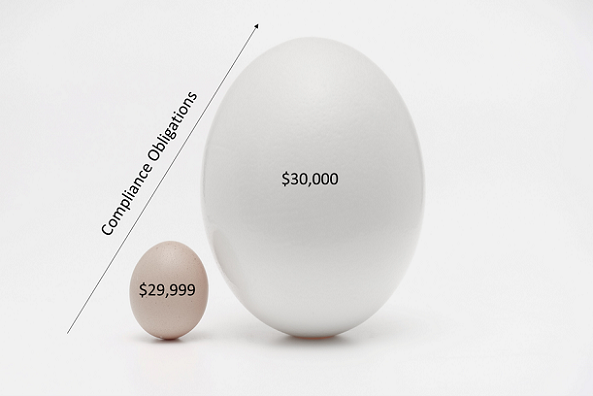
(The small sum of $1 can make a big difference in terms of regulatory financial compliance)
Many sport clubs will have assets (e.g. land and buildings) with a value in excess of the asset threshold of $30,000, but for all other intents and purposes operate as a “small society” in practice, with low operating payments in any given year. This means that a significant number of clubs will be subject to the more comprehensive financial reporting requirements of the Bill, despite the fact that their main assets are not liquid, and their liquid assets fall well below the operating payment threshold.
The Association recommends that the definition of “small society” in the Bill is amended to increase the thresholds for what constitutes a small society. Alternatively, the wording of the Bill could be amended so a society is considered “small” if it has operating payments of less than $10,000 or total assets less than $30,000, rather than needing to meet both those requirements.
Viewpoint (1) : “How Much Dough, To Have A Go?” ...
An age-group (secondary school) national hockey tournament in the July school holidays (before travel costs) was reported to cost $1,500 per player to participate (around 3.5% of the median Kiwi after-tax pay packet), principally funded by parents. How many talented teenagers in New Zealand sport are on the side-lines due to unaffordable costs?
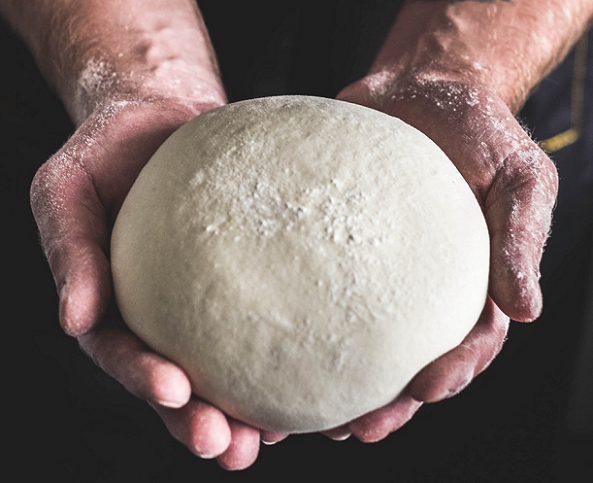
(Sport for teenagers is becoming increasingly exclusive, as a consequence of cost)
The National Youth Sport Parent Survey undertaken by “Project Play” (a project formed by the Aspen Institute in the United States) has reported that “low-income kids (aged 6 to 18 years) are six times more likely to quit sports due to costs”, than children from high-income homes.
The survey also illustrated that, children from high-income homes were at least twice as likely to play field hockey and tennis, or to participate in skiing/snowboarding than kids in low-income homes. Children from low-income homes were more likely to play tackle football and basketball.
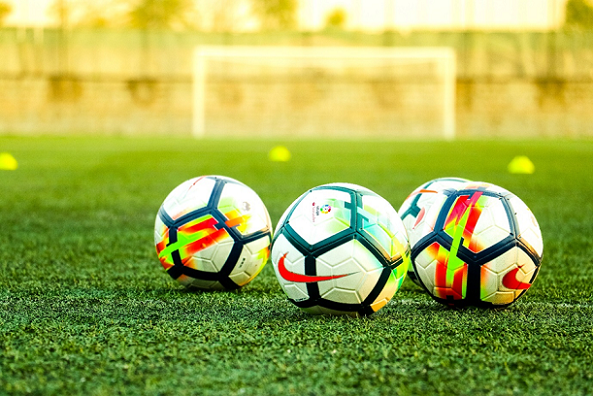
(Low-income kids, aged 6 to 18 years, are six times more likely to quit sports due to costs)
Overall, high-income households reported spending on average US$1,099 annually for one child, compared to US$719 for middle-income homes and US$476 for low-income homes. High-income parents paid twice as much on registration fees, travel and lodging, lessons and instructions, and camps as low-income parents.
So what can be done to make sport more affordable?
As this Association has stated on many occasions, taxpayer funding for sport is not going to where its needed most. If we accept as a society that clubs are the principal delivery mechanism for community sport, then government funding most go directly to supporting their operations, thereby reducing the financial barriers (e.g. subscriptions and other costs) that the local community must pay to participate.
If as a society we do not believe that clubs (based on unpaid volunteers) are important to deliver sport, then who will provide it? If clubs are not the community-led structure to support participation in community sport, then what organisational structure is?
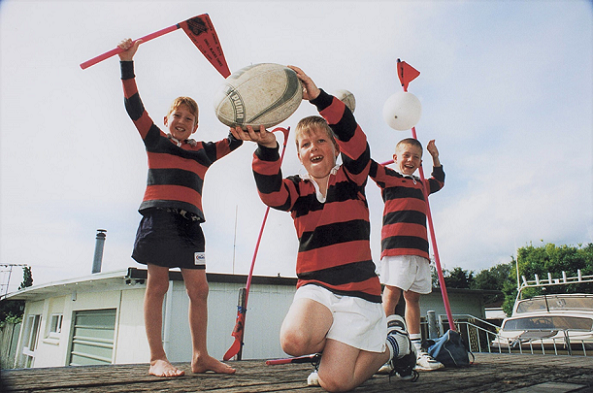
(Clubs provide the infrastructure for the delivery of sport to New Zealand communities)
District Court Charges Put Spotlight On Rugby Union On-Field Violence ...
88 years ago, Wellington’s respected evening journal, the "Evening Post" wrote (in response to increasing “rough play” in the game of Rugby Union), “a belief that the way of the game is such that you must use intimidation or violence in order to win is demoralising on the field and off; the belief is as dangerous as the actuality; give the belief a long enough start, and it will become the practice, at any rate in winning circles."

(An amateur rugby player in Wellington is facing charges of grievous bodily harm)
On 13 July this year, a headline in the Post's successor newspaper reported that a “Wellington club rugby player [has been] charged with wounding [an] opponent with [the] intent to cause grievous bodily harm”. The charge raises a number of questions around violence in amateur sport, which were discussed in an article on the Club Rugby (www.clubrugby.nz) web-site. (You can the Club Rugby article, by clicking here).
As reported by the Association in an earlier edition of this newsletter, a study by the George Washington University Medical Centre and the University of Hong Kong found that “measures of aggressiveness and professionalisation were significant predictors of on-field violence in Rugby Union; high scores on both indicated a greater probability of reporting the use of unsanctioned aggressive force for the sole purpose of causing injury or pain.”
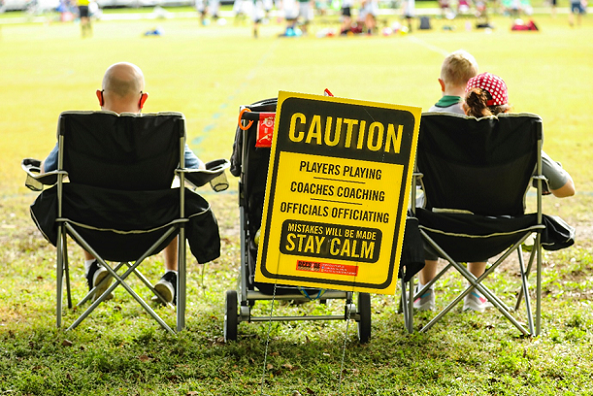
(Aggressiveness and professionalisation are significant predictors of on-field violence)
As observed by the Auckland University Law Review in 1997, “participation in sporting contests and contact sport should not be viewed as a licence to abandon the restraints of civilisation.“
Viewpoint (2) : "Winning at All Costs Is Not True Leadership" ...
The Latin phrase "inter arma enim silent leges" is popularly translated as, "in times of war, the law falls silent." Much of New Zealand's sporting nationalism has militaristic origins, with the "ANZAC spirit" experienced on the battlefield well over a century ago, still resonating in many sport arenas and in the rhetoric associated with many sporting contests, even today.
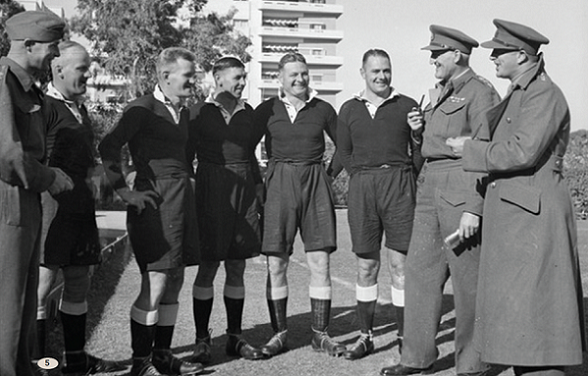
(The "ANZAC spirit" is a key part of New Zealand's sporting nationalism)
However there is fine-line between equating sport to "war on a battlefield" and imperiling the values and spirit of the sporting contest itself. U.S. based sports journalist, Ray Hennessey writes, "when you lead by telling your team to "win at all costs", you can end up with a team that doesn’t know right from wrong. When you set out to win and don't count the costs, you end up paying far more than you expected." In short, you may win "the title", but you may also lose the community respect that you had hoped to gain by doing so.
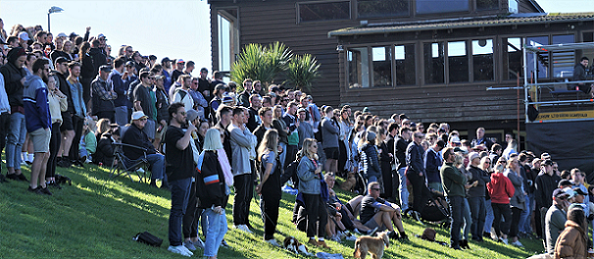
(Amateur sport's goal is to celebrate universal ideals, which bring people together)
In "war", societies fight over national ideals that imperil their way of life. In sport, societies celebrate universal ideals that bind communities together. When we can no longer distinguish one from the other when engaging in competition, the purpose of the sport itself has been lost. In amateur sport, while there will always be a winner or loser in any contest, if society is not stronger for the contest occurring, then it should not occur at all.
National Sport Club Survey (NSCS) 2021 Around The Corner …
A reminder that the 2021 National Sport Club Survey commences on Monday, 19 August. Next Friday (30 July), contact will be made with all sport clubs on the survey database by e-Mail to confirm further details. If your sport club does not receive this message, or if you’re unsure if your club is registered on the database, please contact support@asa.org.nz.
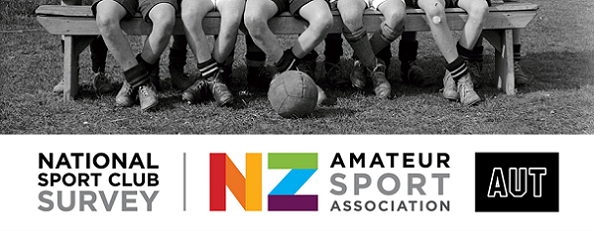
We would like to thank our principal survey sponsors, Dynasty Sport, Pinnacle Corporation and Forsyth Barr for their support of the survey, now in its fourth year of providing insights relating the heart of New Zealand community sport, our community clubs.
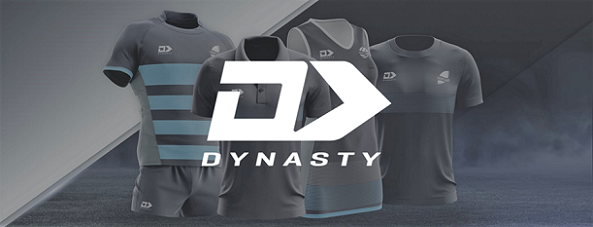
Anyone For Tennis? ...
Following a meeting in "Hutchison’s Tea Rooms", (the meeting place of many South Canterbury sport clubs) on Stafford Street in Timaru on Thursday, 3 March 1921, it was decided to form the South Canterbury Tennis Association. The tennis clubs represented at the formative meeting were: Geraldine; Fairlie; Pleasant Point; Waimate; Wai-iti; Timaru and "the Civil Service". The decision to form the Assocation was essentially based on “money”. Prior to its formation, all revenues derived from the activities of South Canterbury tennis clubs were paid to the Canterbury Tennis Association.
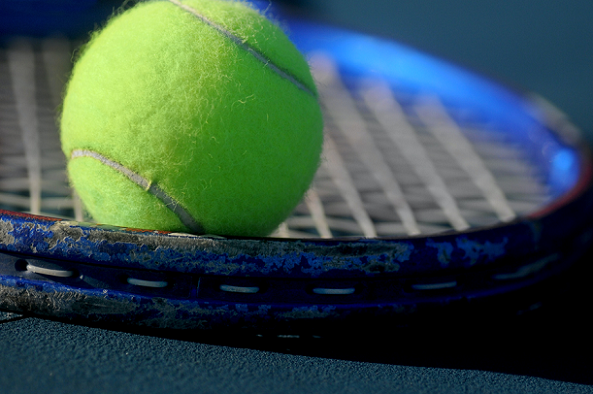
(The South Canterbury Tennis Association is celebrating a century of the game in the region)
Richard William Pearse, New Zealand’s famous inventor and aviator who filed for a patent to manufacture a “flying machine” in 1906, was a member and secretary of the Waitohi Terrace Tennis Club in the early 1900’s. The Pearse family were heavily involved in tennis, with Richard's brother Warne one of the founders of the new Association.
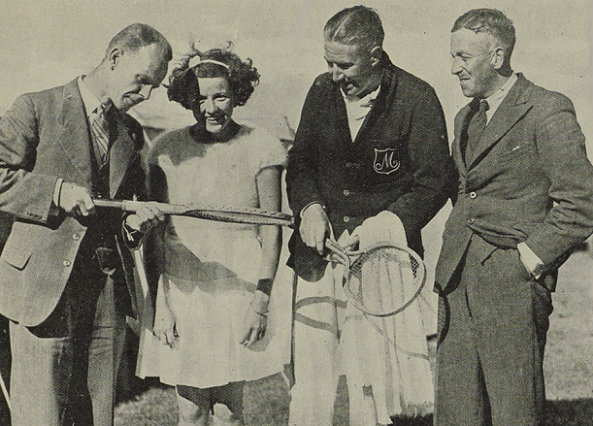
(Irene Poole, 1937 NZ champion, with South Canterbury Association officials in Timaru)
A century following its formation, Carol Angland is publishing a book entitled “Anyone for Tennis?” which celebrates 100 years of tennis in the South Canterbury region. The book will be launched on July 30 coinciding with an exhibition at the South Canterbury Museum. The centennial celebration will be held in November. You can read more about the new book, here.
From The Archives ...
BOWLING AND NOTES
FREE LANCE, VOLUME XVI, ISSUE 876, 20 APRIL 1917, PAGE 20
“Mr. Charles Hollard, J.P, who passed away, at the age of 68, quietly and unexpectedly at his residence in the Hutt early on Sunday morning last, had been identified with the Lower Hutt all his life. He was born there, lived his whole life there, and in his prime he was the champion athlete of the district. Every Hutt-ite knew Charlie Hollard, and in pretty well every form of manly sport and exercise Charlie Hollard had made his mark.
Hollard was a cheerful spirit, a most companionable fellow and a keen sportsman. His characteristic remark was, "Oh, I'm all right," and that was his reply even on Saturday last to inquiries about his health. Like Abraham Lincoln, he was tall, spare, and bony in figure, and his likeness to "Old Abe" caused, some of. his classmates to nickname him "President Lincoln."
About 13 years ago Charlie Hollard and Charlie Trevethick took an active hand in forming the Hutt Bowling Club, and they have been its mainstays ever since. Hollard was green superintendent, and the pride he took in his. club is reflected in the loveliness of its grounds.”
Charles Hollard was born on 4 February 1849, one of the nine children (five sons and four daughters) of Charles and Ann (nee Hilborne). Charles’ parents emigrated to New Zealand from Somerset, England, arriving in Wellington in October 1841 aboard the “Arab”. Having initially settled in Karori, the family moved to the Hutt Valley, where in 1872, Charles married Harriet Pilcher. Living for a time in Greytown (in the Wairarapa), they eventually established their home at Ludlam Crescent, Lower Hutt and raised three children there.
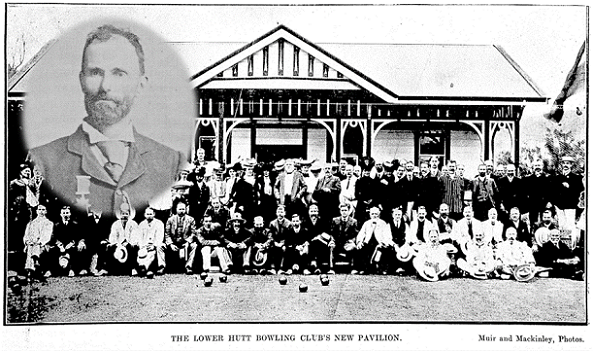
(Charles Hollard, inset, a founding member of the Hutt Bowling Club in Lower Hutt)
Charles was a renowned cricketer, athlete, marksman and bowler. A member of the Aglionby Cricket Club in the 1860’s, he also played for the Greytown and Kuratawhiti Cricket Clubs in the 1880’s and for the Waiwhetu Club in the 1890’s. At the Caledonian Games in 1870, he threw the “heavy hammer” (22 pounds, or 10 kilogrammes) 56 feet (or 17 metres) and he was also known for “throwing the crowbar”, (a seemingly hazardous pursuit!)
Charles was a member of the Hutt Volunteers Rifle Club and the Petone Martini-Henry Rifle Club, wininng the Kynoch Cup (the New Zealand Rifle Association’s championship) in 1897. A foundation member of the Hutt Bowling (and Tennis) Club, he served on the management committee for 10 years, as well as serving as President. In later years, he was the well-respected “green superintendent”. A Borough Councillor for Lower Hutt, Hollard died on 15 April 1917 and is buried in the Taita Cemetery.
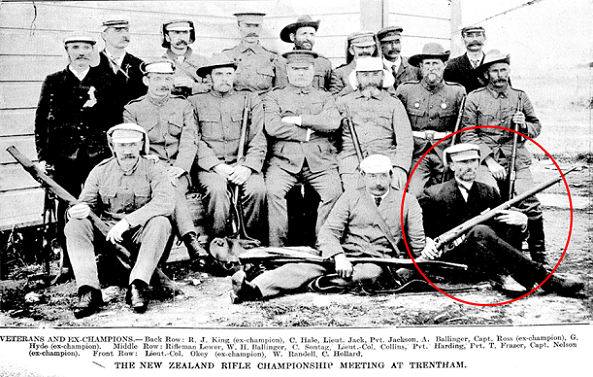
(Charles Hollard, circled, was the New Zealand Rifle Association champion in 1897)
The Final Word ...
“We aren’t rich in resources or money, but we are rich in the things that matter to us the most – namely, God, Love, Family, Community.”
(Oriental Rongotai Rugby Football Club, Wellington, New Zealand)
